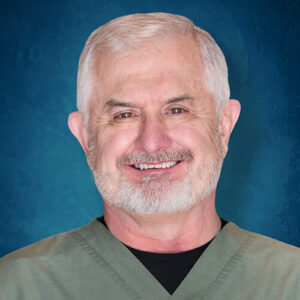If you are considering fat transfer surgery, or any cosmetic procedure, it’s so important not to overlook the recovery period. Even for relatively minor procedures, ensuring a successful outcome requires resting and recovering so your body can heal.
The caring postoperative team at Innovations Medical will give you detailed instructions after you undergo any of our fat transfer procedures. This will include caring for the surgical site, managing swelling and soreness, and when to resume normal activities. Following these instructions closely and attending post-operative checkups with your doctor is the key to the best results for fat transfer surgery.
Along with this, nutrition and hydration are absolutely essential to recovery. Not only is your body healing, but the newly placed fat needs nutrients to thrive. That’s why a nutrient-rich, anti-inflammatory diet after fat transfer surgery is a standard recommendation by Dr. Johnson and our team.
What is fat transfer surgery?
Fat transfer surgery, also called fat grafting, is simply the process of taking fat from one part of the body and injecting it into another. Because it can take fat from an area you don’t want, say love handles, and move it to somewhere you do, like your breasts or butt, fat transfer has become one of the most popular types of cosmetic surgery. With nearly 1,000 fat transfer procedures performed, Innovations Medical is one of the most experienced practices in the Dallas region — and all of Texas.
Fat transfer surgery, including our Brazilian Butt Lift (BBL) and Breast Augmentation procedures, has a short recovery and allows you to get back to work and normal activities quickly. To give you the shortest recovery and best results, we’re sharing the following guide to foods to eat and foods to avoid after fat transfer surgery.
Eat These Foods After Your Fat Transfer Surgery
In the days right after surgery, your body is still stressed and healing. Many people choose to eat easily digestible foods during this time. Apple sauce, yogurt, soup, and mashed potatoes are examples of nutrient-rich foods that are easy on the stomach.
You also need to drink plenty of water. 64 to 100 ounces is the standard recommendation, but always check with your doctor.
As your appetite comes back and you resume normal activities, a protein-rich, anti-inflammatory diet with plenty of unsaturated fat will help your body recover and your newly placed fat thrive. Always consult with a qualified doctor or dietician for the best diet for you. Commonly recommended foods after fat transfer surgery include:
- Lean proteins: including chicken, turkey, wild-caught salmon, Greek yogurt, quinoa, and black beans. Protein is important for making new blood cells and collagen, the building blocks of the body.
- Monounsaturated fats: including avocados, extra-virgin olive oil, almonds, and Brazil nuts. These foods can help reduce swelling and improve blood flow.
- Fruits: including antioxidant-rich blueberries, raspberries, blackberries, and cherries. Antioxidants boost the immune system and help your body fight off free radicals that can appear after surgery and slow down the healing process.
- Vegetables: including leafy greens like spinach and kale, and legumes like lima beans and green beans. These and other vegetables are high in vitamins and minerals that are antioxidants and can also help the body heal.
Overall, if you are eating a clean anti-inflammatory diet, calories are your friend during recovery from fat transfer surgery. Your body is essentially rebuilding itself during this time, and it needs fuel to do it.
Avoid These Foods After Fat Transfer Surgery
On the other hand, inflammatory junk food can potentially inhibit healing and promote swelling and soreness after fat transfer surgery. Because of this, patients are usually advised to stay away from the following foods, particularly during the first few days:
- Refined sugars, especially soda and candy
- Saturated fats, including fried foods and red meat
- High sodium foods, such as canned soups and packaged snacks
- Heavily processed carbohydrates, such as white bread and store-bought pastries
Alcohol consumption is prohibitive to hydration and generally inflammatory, so patients are typically advised to steer clear, especially during the first 72 hours.
While small amounts of any food can be enjoyed in moderation, the more you can emphasize healthy, whole foods after fat transfer surgery, the better off your recovery can be.
If you have any questions during recovery, do not hesitate to reach out to Dr. Johnson and the caring team at Innovations Medical.
Contact Innovations Medical to Learn About Fat Transfer Surgery
If you’re looking to shape your body and remove fat from problem areas, Innovations Medical is here for you. Our skilled professionals help you decide which treatment is best for you – keeping you informed and confident in the next steps. We’ve been helping our patients look and feel their best since 2005, and even our most advanced procedures are often minimally invasive.
To find out if a fat transfer surgery is right for you, and to learn how Innovations Medical can improve your life, call us at (214) 643-8665 or schedule a consultation.




